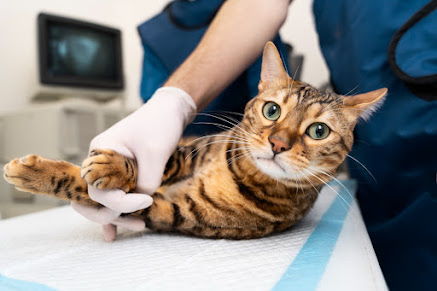How Long Do Dwarf Hamsters Live as Pets? Unveiling Their Lifespan and Care Tips
Dwarf hamsters have captured the hearts of many pet enthusiasts around the world with their adorable appearance, small size, and lively personalities. These pint-sized companions make excellent pets, particularly for those with limited space or a preference for smaller animals. However, before bringing a dwarf hamster into your home, it's essential to understand their lifespan and the factors that influence their overall well-being. In this blog article, we will delve into the intriguing topic of how long dwarf hamsters live as pets and provide valuable insights into ensuring their longevity and happiness.
Understanding Dwarf Hamsters:
Dwarf hamsters are a group of small rodent species that belong to the genus Phodopus. The most common types of dwarf hamsters kept as pets are Campbell's dwarf hamsters, Winter White Russian dwarf hamsters, Roborovski dwarf hamsters, and Chinese dwarf hamsters. While each species has its own unique traits and care requirements, their lifespans are relatively similar.
Average Lifespan of Dwarf Hamsters:
On average, dwarf hamsters have a lifespan of around 2 to 3 years, depending on various factors. However, it is important to note that this is a general range, and individual hamsters may live shorter or longer lives based on their genetic makeup, health, diet, and living conditions.
Factors Influencing Dwarf Hamsters' Lifespan:
- Genetics: Just like any other living creature, genetics play a significant role in determining a dwarf hamster's lifespan. Some hamsters may be more prone to certain health issues or have a weaker constitution, which can affect their longevity.
- Diet and Nutrition: Providing a balanced and nutritious diet is crucial for promoting a long and healthy life for your dwarf hamster. A proper diet should consist of commercially available hamster pellets, fresh vegetables, and occasional treats. Avoid feeding them sugary or fatty foods, as these can lead to obesity and related health problems.
- Environment and Habitat: The living conditions and environment in which your dwarf hamster resides can have a substantial impact on their overall well-being. Ensure that the hamster cage is spacious, well-ventilated, and equipped with suitable bedding, hiding spots, toys, and an exercise wheel. Proper temperature and humidity levels should also be maintained to keep them comfortable.
- Veterinary Care: Regular veterinary check-ups are vital to monitor your dwarf hamster's health and detect any potential issues early on. A qualified veterinarian can provide guidance on vaccinations, parasite control, and general wellness care.
- Social Interaction and Enrichment: Dwarf hamsters are social animals, and providing them with regular interaction and mental stimulation is crucial for their overall happiness and well-being. Spending time with your hamster, providing safe toys, and creating an enriching environment will help prevent boredom and potential health issues associated with inactivity.
Conclusion:
Dwarf hamsters may have a relatively short lifespan compared to other pets, but they can bring immense joy and companionship during their time with us. By understanding the factors that influence their lifespan and providing them with proper care, nutrition, and a stimulating environment, we can ensure that our dwarf hamsters live their best lives. Remember, the bond you form with your tiny friend is not measured solely by the number of years, but by the love and happiness you share.
So, if you're considering adopting a dwarf hamster as a pet, be prepared to provide a nurturing and stimulating environment, prioritize their well-being, and cherish the beautiful moments you spend together, regardless of the length of time. Dwarf hamsters may be small in size, but their impact on our lives can be immeasurable.






